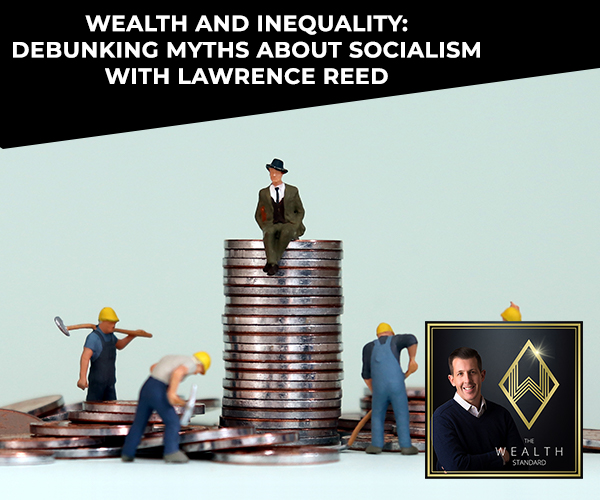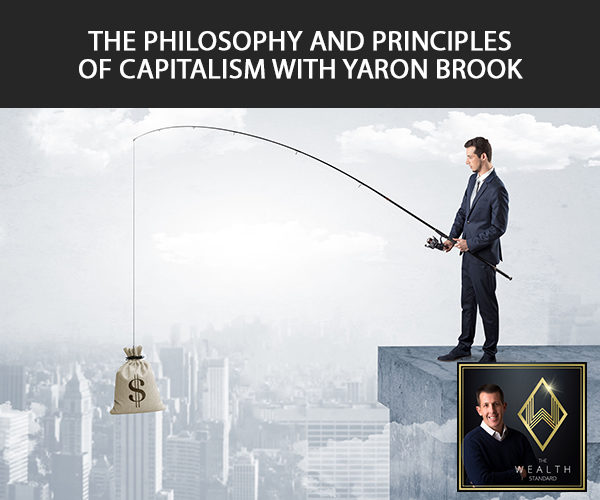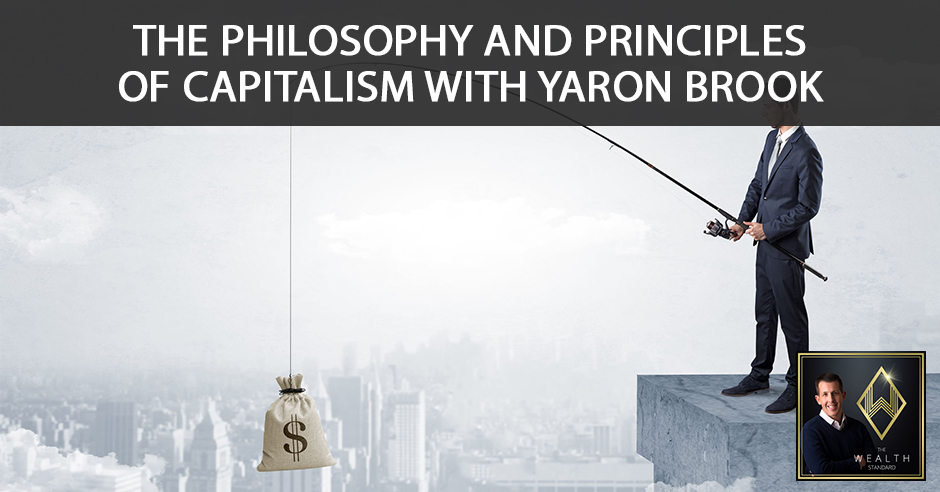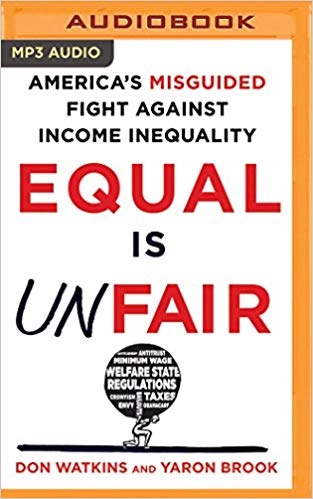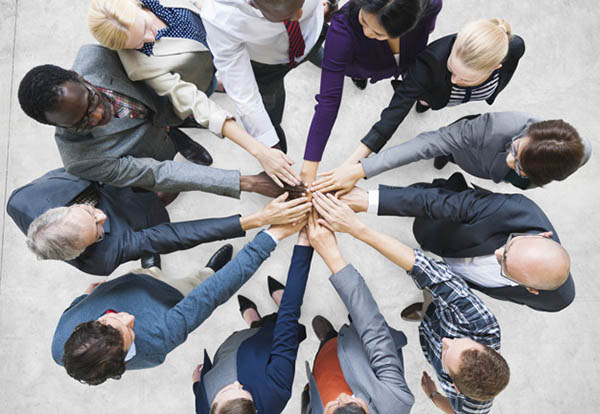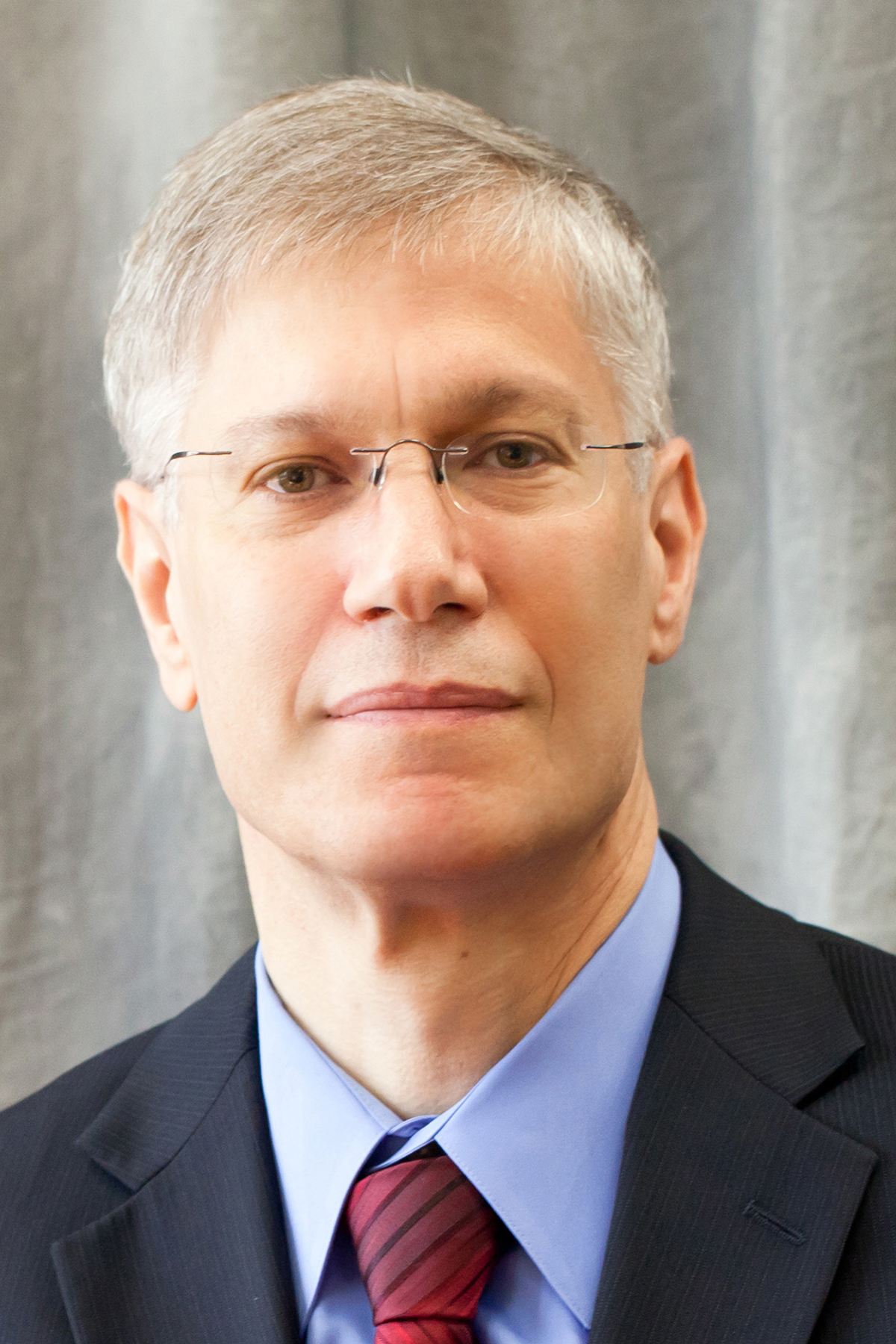Wealth And Inequality: Debunking Myths About Socialism With Lawrence Reed
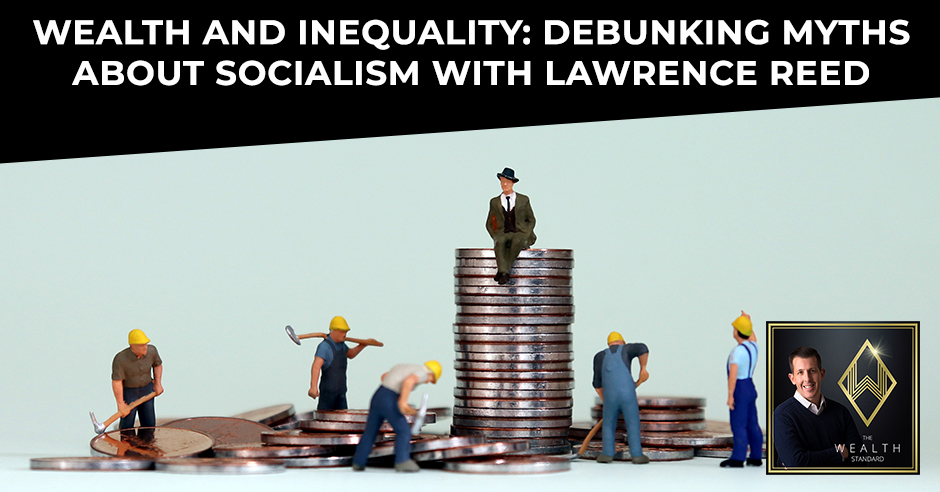
When it comes to wealth and inequality, it can be challenging to have a meaningful debate or conversation, especially with somebody that has an opposing point of view.
On today’s show, Lawrence Reed and Patrick Donohoe tackle these issues and share some insights on how you can take the right approach to inspire, educate, and have a positive influence over anybody.
Lawrence is the author of WAS JESUS A SOCIALIST? Why This Question Is Being Asked Again, And Why The Answer Is Almost Always Wrong, a book that debunks misconceptions about capitalism and the free markets with regards to being a follower of Jesus. He is the former President of the Foundation for Economic Education (FEE).
—
Watch the episode here:
Listen to the podcast here:
Wealth And Inequality: Debunking Myths About Socialism With Lawrence Reed
Thank you for tuning into the episode. Lawrence Reed is the President of FEE. He’s also written a number of books, but his book that came out is WAS JESUS A SOCIALIST? Why This Question Is Being Asked Again, And Why The Answer Is Almost Always Wrong. He’s my guest. He was on about several months ago and it was an incredible interview. He’s so smart and well-read, but also can articulate his perspective well. I realized that we’re in some challenging times right now and I hope you are thriving. I see so much opportunity all around us to do good, to build our business and to adjust things in our personal lives for the better. Hopefully, you are taking advantage of that.
Make sure you go to the website, TheWealthStandard.com. We have a new resource section that has a lot of the programs, the book recommendations and other free courses and digital material. It’s a resource section of the website. Additionally, there’s a link to Larry’s new book, which is available on Kindle, as well as a paperback format so make sure you check that out. His organization FEE, The Foundation for Economic Education is, FEE.org. I hope you learned something from this relatively short interview compared to our last one but Larry has a perspective that I know that if you had it, you would think differently.
Regardless of the subject matter as well as the context, because it’s religious in nature, don’t overlook this episode because there’s a lot of good principles and values in there regardless of what your faith is. Hopefully, you benefit from it. Thanks for connecting too. Head over to YouTube. The episode is on YouTube as well. Subscribe to the show if this is your first time as well as the YouTube Channel. Also, follow us on social media. We’re posting quite a bit there and connecting with the audience. I would love to have you subscribe. I’m going to cut to my interview with Larry Reed.
—
Larry, thanks for joining me. It’s hard to believe that it’s been almost several months since we did the last interview. It seems like yesterday. It was one of the favorites that I had in memory as I think back on some of the meaningful conversations I’ve had. Thank you for joining us. I’m excited about the conversation.
Thank you, Patrick. It’s my pleasure. I remember that program we did in January of 2019 very fondly. It’s on my website as a matter of fact.
I appreciate you helping me get the word out there. Larry, so much has changed since January of 2019. What I thought would be interesting before we get into this semi-controversial subject is to set some context. Right now, I have two teenage daughters in my house. It’s interesting the conversations you have and how much debate exists. Where I’ve gone to is not trying to prove that I’m wrong or put my fist down with authority, but it’s to understand them at a deeper level and where they’re coming from. It’s not assuming that they know what I know, have experienced what I’ve experienced.
It totally changes the dynamic of the conversation. I wanted to pick your brain briefly so we can set some context for the controversial subject of wealth and inequality, and specifically, your new book, WAS JESUS A SOCIALIST? Why This Question Is Being Asked Again, And Why The Answer Is Almost Always Wrong. It’s pretty controversial. What are your thoughts as you’ve experienced not the mainstream stance on economics, on political policy, and economic policy? Where do you stand with having meaningful debate and conversation, especially with somebody that has an opposing point of view?
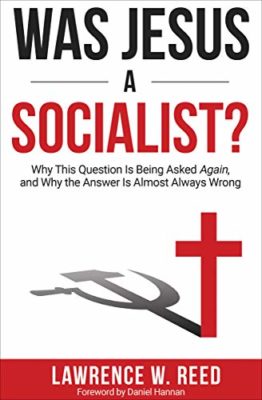
You’re taking the right approach with your daughters, especially at a young age, young people who always have a little spirit of rebellion in them and a sense of idealism. If you come across as “I’m right, you’re wrong. You take what I give you and make it your opinion.” That almost never works. If you show that you’re open to a different view, but still from on your own and even take a bigger picture approach, also interested in whatever truth may lead you to, you’re in the long run more likely to have a positive influence over anybody, your daughters and anybody else. Sadly, these days, in academia, there’s not an emphasis on critical thinking skills that there was when I was a student. There are so many in academia now who act in the classroom as if they’ve got a monopoly on the proper viewpoints and on things like compassion or caring for other people. Their purpose is to indoctrinate rather than to inspire and to educate and encourage students to think for themselves. That’s very unfortunate. That is not going to serve students well in later life. It never does.
I look at the conversation we’re about to have and how much of that is being had. However, the levels of depths that the conversation gets to it’s very shallow. With the conversations, I get to have with people that, just a couple levels deeper, I believe that there is tremendous wisdom there. The reason why I wanted to start with that and this is for the audience is not to take a stance on we’re right and you’re wrong. If you have a differing opinion, it’s to say, “I recognize, understand that there are all opinions out there.” I take a stance of I may be wrong. I may be stating something that may have a different perspective and information than I have not been privy to.
That’s why I try to bring on experts like Larry so I can understand my own beliefs better and question them so that I can make better decisions. I can live a more meaningful life. I believe that the more wisdom that you have, the better decisions you’re going to make and the better outcomes that you’re going to have. Larry, let’s get into this idea of inequality. I’ve sent you some questions in advance. You take a look at the fact that there is inequality and it’s something that there are some pretty strong positions on both sides. What does inequality mean to you and maybe in the context of the book that you just wrote?
There is a kind of equality that I’m all in favor of. We all should be in favor of and that’s equality before the law. The law should be impartial. It should not render judgments against people for or against, based upon irrelevant criteria, but rather whether or not you did it, whether or not you deserve it or whatever. Economic equality is what’s in the news so much these days. That’s the kind of equality I talk about in the book. There are a lot of people who claim that economic inequality, differences in income and material possessions, material wealth is a bad thing and that it would be better if we equalized or what as far in that direction as we could, the material possessions of individual people. The problem with that is that no two people who have ever lived have been precisely alike.
Why should we expect that what they contribute to the marketplace and how other people’s values that in the marketplace should be the same? We’re different in terms of the talents that we have. If I tried to be a professional basketball player, my income from that will always be drastically lower than, fill in the blank, famous basketball player of now. We’re different in terms of the talents we have, the willingness to work. Some people work long hours hard. They think hard as well as work hard. That sometimes often reflected in the incomes later. We’re different in terms of our savings. If we equalized everybody tonight, materially speaking, we’d have inequality again by noon tomorrow because some people would save it and some people would spend it. It’s illusory to think that people who are not the same or very different in so many ways would somehow create equal incomes in the marketplace.
What do you see as the biggest pushback to that, as far as the conversations you’ve had, especially on very deep and obviously with a religious spin onto it?
Probably the biggest pushback, and it extends from my misunderstanding, would be that the problem is the system is rigged. Some people get unfair advantages. They work the politicians to get special benefits at the expense of other people. I’m the first to say I’m against that too. That’s not freedom and free markets. That looks a lot more like socialism, where you have concentrated power in the hands of politicians, and then they choose to bestow that power on their favorite friends. I’m against that too. That’s a legitimate response, but if you think that the answer is to adopt socialism, you’re only going to compound the problem because that’s the most corrupt system known to man. Lord Acton told us “Absolute power corrupts absolutely.”
Absolute power corrupts. Click To TweetThe more you concentrate power in the hands of mortals, no matter what the expressed intentions may be, the more mischief and difficulties and impoverishment you’re going to have. That would be probably the number one pushback. Close behind would be there’s a sense out there always has been among human beings that whatever the cause, people should still be equal. One guy shouldn’t have more than another. When you hear that the best response is to raise questions, to ask the person, why should someone who doesn’t utilize his talents fully versus another who does? Why should one person who doesn’t save and invest versus another who does? On down the line of all the differences that define us, why should all those people be precisely the same in terms of what they earn? What about consumers? Don’t they bestow your income by choosing to buy or not to buy based upon what you’ve offered them?
It’s a fascinating question because there are lots of emotions that surround it. I believe the emotion and I haven’t necessarily thought through this well enough, but how do you see the relationship between altruism and self-interest? There’s this draw for those that have to give to the have nots and those that don’t have are the recipients. Somehow that makes their situation better, but there’s also a natural kind of self-interest in everybody. It’s wired within us for self-preservation first and foremost. How do you understand or characterize the relationship between altruism and self-interest?
I thank God every day that we are self-interested. If we were purely altruistic, nobody thought themselves and only thought about others, you would quite frequently leave yourself in a position at which you can’t help others. You’ve ignored number one, you haven’t provided for yourself. You haven’t used your own talents fully. You’re not out there creating wealth as you and your unique abilities are best able to do. If you’re not doing that, how can you help others? Self-interest is by its very nature a constructive motivation. It’s the only one that goes to the point of somebody ignoring the rights of others and takes the form of say theft or deception or fraud. That self-interest goes across the line. It becomes harmful to other people. Otherwise, it’s the most important motivation in explaining the production of this planet.
Think of the guy in Brazil who is growing coffee. He’s not doing that because he’s thinking of you. He’s not thinking, “I must sacrifice and work long hours so that Larry has coffee up there in Newnan, Georgia.” He’s doing it because there’s something in it for him. Along the way, because of that self-interest, I get coffee. I’ve seen it used in different ways. Sometimes it’s meant to mean simply caring for another person and choosing to help them. Other times, it seems to be used in terms of the desire to do harm to yourself because that makes you feel better. In the process of harming yourself, give your possessions to somebody else. Serve someone else and be a doormat in the process. That’s the most destructive form of it.
I never denigrate the personal choice of engaging in charitable activity. It’s a fine motive when it comes to the heart. When it goes awry is when some politician comes along and says, “I’m going to make you give. In fact, I’m going to take it from you and give it on your behalf.” That’s not charity at all. You don’t accomplish much. The person that you’re taking it from in the end is not going to be a better person because of it. Any more than if you take somebody to the church at gunpoint, but that person is going to end up being more religious.
Segueing into the religious topic. I know that that is the framework in which you’ve written your latest book, WAS JESUS A SOCIALIST? Why This Question Is Being Asked Again, And Why The Answer Is Almost Always Wrong. First off, what motivated you to pursue that type of work rapping in the religious context to it? What did you hope to achieve with being able to get the message across?
As I explained in the book, I’ve heard this idea for 50 years that Jesus would be sympathetic to socialism. My understanding of history and Christianity always made me wonder about that. I couldn’t square it. Everywhere I looked around the world, I saw socialist regimes being the most impressive. The ones that utilize force, the ones that impoverished their people and I thought, “How could it be that a man who said even the most important choice you have to make whether or not to accept him is going to be a matter of free will? How could that same man say, ‘When it comes to everything else, we’re going to take it from me and spend it better than you can?’” I couldn’t square that.
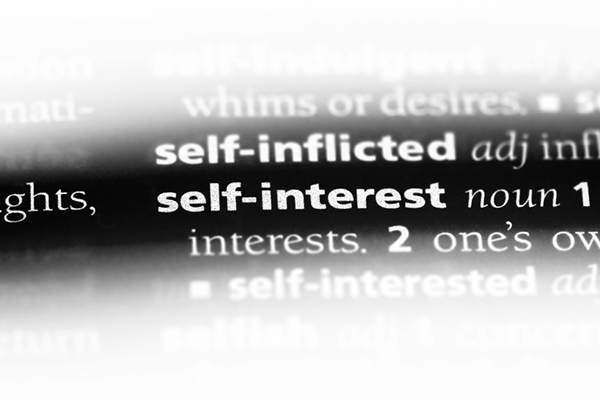
Wealth And Inequality: There’s a natural kind of self-interest in everybody that is wired within us for self-preservation.
When I started reading the New Testament in great detail, which I’ve done multiple times over the decades and then applying what I know as an economist and historian, it screamed at me. This is a myth that needs to be answered, too many people falsely believe it. Every time I looked throughout the New Testament, every word that Jesus uttered, I find an endorsement of things like personal choice, private property, voluntary contracts, even supply and demand. I thought this needs to be rebutted in a way that appeals to a broad lay audience. This is not a book for theologians, although I hope they read it too, it’s for anybody who’s interested in history, the facts and what Jesus said.
What’s the response been? What are the primary takeaways and the things people are learning that may not have an understanding of economics, especially the organization that you’ve done an incredible job running, the Foundation for Economic Education? Without that, what have you seen the response from those types of individuals?
There’s been a hunger out there and the fact that the book is very unique. There’s been a rush for it. Amazon’s already sold out, but that’ll be remedied shortly. I hear a lot of people saying, and I’ve done media interviews, like crazy since the release of the book. I get a lot of this. People say, “I always thought the story of the Good Samaritan was a case for the welfare state.” As I pointed out in the book, what made the Samaritan good was the fact that he chose to help the man in need of his free will and with his own resources. He didn’t tell the man, “Call your social worker,” or “Let’s get a government program for it.” If he did, we’d call him the good for nothing Samaritan.
A lot of people are amazed to learn about the parable of the talents. No socialists could tell this the way Jesus did. Jesus talks about three guys whom a wealthy man trusts a big portion of his wealth with as he leaves for a time. He says, “When I come back out, I’ll ask each of you what you’ve done with it.” When he comes back again, told by Jesus himself, he asked the first man, “What’d you do with what I trusted you with?” The man said, “You’ll be happy with me. I buried it. I have just as much for you as you trust to be with.” In the parable, Jesus criticizes that man, “What? You didn’t magnify it in any way.” He asked the second guy, “What’d you do?” He said, “You’ll love what I did. I doubled or tripled your wealth.” Jesus praises him. He says the third guy, “What’d you do?” The third guy says, “I did even better than that.” He’s the one that Jesus praises the most. In fact, in the parable, he takes the money from the first guy and gives it to the third guy because he knows how to create wealth. I’ve had a lot of surprise audience with that.
How do you associate that with what Jesus was referring to because the talent at that time was money? There was a way in which money was weighed. The word talent is representative, the circumstances we were born in, training, natural abilities, etc. How do you equate that to those who are gifted with something and multiply that versus those who are gifted with something that doesn’t do anything with it?
The same analogy would apply whatever your gifts may be, whatever your talents, in a sense of personal traits and abilities, we are all called to make the best of it. Be the best person you can be to magnify your ability to make other people happy through the wealth that you create, the examples that you said. That’s all perfectly compatible with what Jesus would say. He was approached in the book of Luke by a man who wanted him to redistribute income. The man says to Jesus in Luke 12:13-15. He says, “Master, speak to my brother that he divides the inheritance with me.” In other words, “I didn’t get a fair share. Can you maybe equalize us or give me more?” Jesus did not say as a socialist like, “You didn’t get as much as the other guy to fix that.” Instead, he immediately rebukes the man for his ending. He makes a statement that I wish every politician would make and that is, “Who made me a judge or a divider over you?” That is a powerful rejoinder against envy and covetousness as well as the redistributive apparatus of the compulsory welfare state in my view.
Larry, what’s the best way to get the book? It’s a short read. This isn’t a novel type of book.
Self-interest is, by its very nature, a constructive motivation. Click To TweetIt’s 160 pages. You can read it in an evening. It’s available on Amazon and also the website of Barnes & Noble. Also, in our organization, The Foundation for Economic Education is FEE.org. It’s available in the bookstore and other places now. There are more and more picking it up all the time. It was just released, but I’m glad to say that it’s going very well.
I am preparing to ask this question so I’m hoping it comes outright. If someone reads this, what’s the best-case scenario? How would our current environment be different if people read this, understood the message and applied it?
If they did that, if they read it and thought about it and acted upon it, they would say, “I need to spend less time lobbying politicians to either get me something or give someone else something and get involved myself in the lives of those who presently are in need. I need to put my money where my mouth is.” Socialists don’t do that. There have been books written about this. Socialists and those who claim Jesus was a socialist, they look to the state to solve problems. All you have to do is look at the federal income tax and you realize a federal budget look at the line for donations. It almost says peanuts. Not even a socialist would think that the government is the best way to solve problems. Not even they will write out a check to the government for more than they’re forced to give. If they give anything, it too is to voluntary private organizations close to home that solve problems so much better than politicians do from Washington.
Right now, there is an interesting spirit of things in our country. There was a tremendous disruption. There were some economic consequences that are being felt. There were some other things from a social standpoint with George Floyd and there are other major issues arising. The idea of inequality is a variable within it all. I see definitely a misclassification and mischaracterization of the idea of inequality. As you look at your book and the experience that you’ve had, what are some of the maybe experiences that you’ve had, where someone is like, “I got it.” They felt one way. They believe one way. They had this high praise for altruism and equality, but then suddenly I started to understand principles, natural laws of the universe and understand the message that you get across in your book. There’s obviously a number of other books that articulate some very similar values and principles.
When you put things back on the individual and when you say, “You’re spending a lot of time expecting politicians to do such and such. Why aren’t you doing that yourself?” These are matters of the heart. It is a personal choice. That’s what determines where you are, not what you say. If they’re introspective enough and they look inward and ask themselves, “Am I doing myself what I want to foist on other people through the political process?” That’s been an a-ha moment. Other times I see them happening when you address particular issues that they’ve been especially misinformed on. I do a talk and have written about the Great Depression. A lot of people think because I’ve been taught this, “The Great Depression, that was the fault of capitalism and free markets. Franklin Roosevelt saves us from it.”
When you walk them through why that’s faulty from the word go, it’s embarrassingly faulty. They are like, “Why didn’t I learn that? How come I didn’t hear that? My teachers never told me there was another side.” The issue by issue sometimes can be a very effective way to produce those a-ha moments. I’m convinced that most people who may lean in the socialist direction don’t lean that way because they’ve thoroughly read to make a case for free markets. They’ve only heard the emotional bumper stickers of the left in most cases. When you present them for the first time with what the other side is arguing real facts, logic, history, and so forth, it’s like an epiphany.
Larry, this has been a great conversation. I love our conversations and you think so deeply, but also you have humility about you that resonates well. Thank you for sharing your wisdom. Even though you’re semiretired, you continue to write and share it, so thank you for that. What are the best ways for people to connect with you?

Wealth And Inequality: Whatever your gifts, talents, or abilities may be, we are all called to make the best of them.
People can go to my public figure Facebook page, where I use my name, Lawrence Reed. They can contact me through FEE.org or they can email me at LReed@FEE.org.
Larry, thank you again. We’ll have to do this. Hopefully, it doesn’t take several months to do it but thank you for the book. Thank you again. This was enjoyable.
Thank you, Patrick.
Important Links:
- Lawrence Reed – Previous episode
- FEE
- WAS JESUS A SOCIALIST? Why This Question Is Being Asked Again, And Why The Answer Is Almost Always Wrong
- Kindle – Rendering Unto Caesar: Was Jesus a Socialist?
- YouTube – The Wealth Standard Podcast
- Amazon – Rendering Unto Caesar: Was Jesus a Socialist?
- Lawrence Reed – Facebook
- LReed@FEE.org
- www.FEE.org
- www.LawrenceWReed.com
About Lawrence Reed
 Lawrence W. Reed is the former President of the Foundation for Economic Education (FEE). He is the former President of the Mackinac Center for Public Policy. He is the editor of the bestselling book “Excuse Me, Professor: Challenging the Myths of Progressivism”, author of the pamphlet “Great Myths of the Great Depression,” and the new book “Was Jesus a Socialist?: Why This Question Is Being Asked Again, and Why the Answer Is Almost Always Wrong.”
Lawrence W. Reed is the former President of the Foundation for Economic Education (FEE). He is the former President of the Mackinac Center for Public Policy. He is the editor of the bestselling book “Excuse Me, Professor: Challenging the Myths of Progressivism”, author of the pamphlet “Great Myths of the Great Depression,” and the new book “Was Jesus a Socialist?: Why This Question Is Being Asked Again, and Why the Answer Is Almost Always Wrong.”
Love the show? Subscribe, rate, review, and share!

